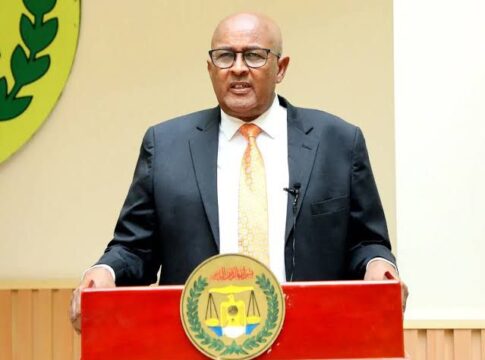Somaliland’s opposition leader Abdirahman Cirro has emerged victorious in the region’s presidential election, defeating incumbent Muse Bihi Abdi with 64% of the vote, the Somaliland Electoral Commission announced on Tuesday. Cirro’s triumph signals a pivotal leadership change for the breakaway Somali region, which continues its decades-long quest for global recognition.
The election results highlight overwhelming support for Cirro’s Waddani party, as Bihi, the outgoing president from the ruling Kulmiye party, garnered just 35% of the vote. The poll marks a critical moment for Somaliland, a self-declared republic that broke away from Somalia in 1991 but remains unrecognised internationally. The lack of recognition has limited the six-million-strong population’s access to international finance and hindered their ability to travel abroad.
Located strategically at the crossroads of the Indian Ocean and the Red Sea, Somaliland is vying for acknowledgment on the world stage. Earlier this year, the region signed a preliminary agreement with Ethiopia, offering the landlocked nation a strip of coastline in exchange for formal recognition. While Cirro has expressed broad support for the deal, analysts are divided over whether he will push forward its implementation.
READ MORE; $32M Unaccounted in Nigerian Water Sector, World Bank Calls for Reimbursement
“The people of Somaliland have spoken decisively, and their voices demand recognition and progress,” said Musa Hassan, chairman of the Somaliland Electoral Commission. “This election is a testament to the region’s democratic aspirations and stability.”
Hargeisa, Somaliland’s capital, remains optimistic about gaining traction on the international stage. Speculation is rife that the incoming U.S. administration under President-elect Donald Trump might be more favorable to Somaliland’s cause, as several key Africa policy officials from Trump’s previous term have voiced support for recognition.
Despite its lack of formal recognition, Somaliland has maintained relative peace and stability for over three decades, a stark contrast to Somalia’s ongoing struggles with civil conflict and Islamist insurgencies. The region’s stable governance and strategic location have drawn growing international attention, but tensions with Somalia remain high, particularly over the Ethiopian agreement.
The deal with Ethiopia has strained Mogadishu’s ties with Addis Ababa, a significant contributor to Somalia’s peacekeeping efforts. Additionally, the pact has driven Somalia closer to Ethiopia’s regional adversaries, Egypt and Eritrea, further complicating the political landscape in the Horn of Africa.
Cirro’s leadership will likely face early challenges in navigating these diplomatic complexities while addressing domestic calls for increased investment, international partnerships, and infrastructure development. However, his resounding electoral victory provides a strong mandate to pursue Somaliland’s aspirations for global legitimacy and economic growth.




